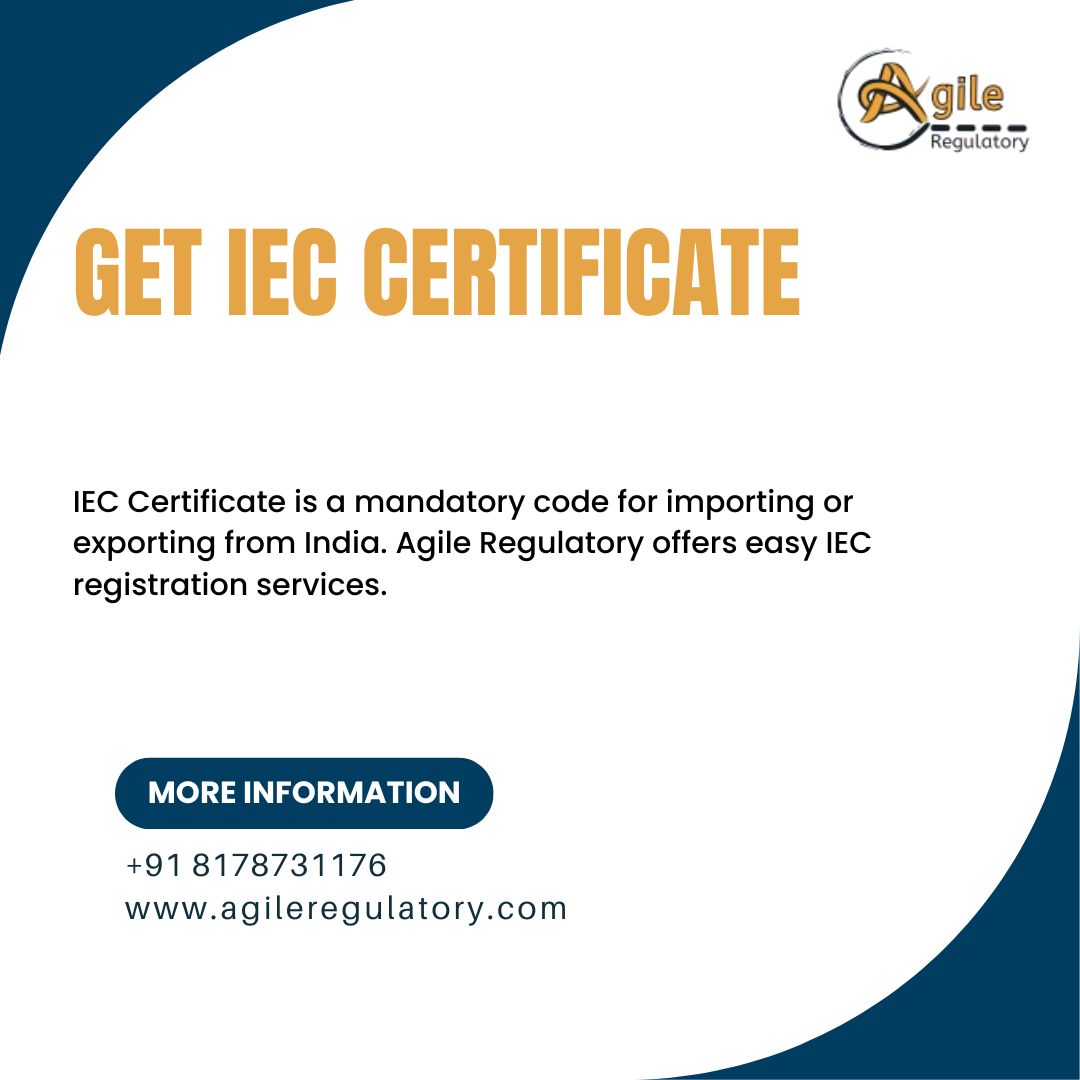Expanding your business to international markets can unlock remarkable growth, but the path to global trade success starts with obtaining the right licenses. Whether you’re exporting agricultural produce or importing electronic components, having the correct legal permissions is not just recommended—it’s mandatory. One of the most critical among these is the IEC Certificate. Let’s explore the essential licenses required for successful import-export operations in India.
1. Importer Exporter Code (IEC Certificate)
The Importer Exporter Code (IEC) is the most fundamental license for anyone wishing to engage in cross-border trade from India. Without an IEC, no business can legally import or export goods and services. Issued by the Directorate General of Foreign Trade (DGFT), this 10-digit code is a one-time registration with lifelong validity.
Why is the IEC Certificate crucial?
- Mandatory for Customs Clearance: IEC is required by Indian customs for both importing and exporting goods.
- Bank Transactions: Banks demand an IEC to process international trade transactions.
- No Renewal Hassles: Once obtained, the IEC doesn't require any renewal, making it one of the easiest trade licenses to maintain.
Agile Regulatory offers IEC as a service to simplify the application process for businesses, ensuring quick approval and error-free documentation. Whether you are a startup or an established business venturing into exports, Agile Regulatory ensures a smooth onboarding to international trade compliance.
2. AD Code Registration
After receiving the IEC Certificate, businesses must register the Authorized Dealer (AD) Code with Indian Customs. This 14-digit code links your export transactions with your bank, allowing Customs to verify the authenticity of your shipments and enabling smooth repatriation of export proceeds.
3. RCMC – Registration Cum Membership Certificate
Issued by Export Promotion Councils (EPCs), an RCMC is necessary for availing benefits under foreign trade policies. Depending on your product category, you must register with the appropriate EPC like APEDA, FIEO, or CAPEXIL.
4. FSSAI License (For Food Products)
If you are exporting or importing food products, you need a valid FSSAI license. The Food Safety and Standards Authority of India governs the safety standards, labeling norms, and hygiene protocols related to food.
5. BIS Certification (For Regulated Goods)
Products like electronics, steel, and household items often require BIS certification under the Compulsory Registration Scheme (CRS). If you plan to import such goods, it's vital to comply with BIS standards.
6. WPC Certificate (For Wireless Products)
For importers dealing with wireless communication devices like routers, Bluetooth gadgets, and RF modules, obtaining a WPC certificate is mandatory under India’s Wireless Planning & Coordination Wing.
7. Legal Metrology and LMPC Certificate
All pre-packaged commodities being imported must follow the Legal Metrology Act, and an LMPC Certificate is required to comply with labeling standards.
8. GST Registration
Although not exclusive to international trade, GST registration is essential for businesses to claim refunds on IGST paid on exports and to stay compliant with tax laws in India.
How Agile Regulatory Helps
Agile Regulatory is a trusted partner for businesses looking to expand into import-export operations. From IEC as a service to handling complex registrations like BIS, FSSAI, RCMC, and WPC, our end-to-end support ensures you stay focused on your business while we take care of the paperwork. With years of experience and a deep understanding of Indian trade regulations, we’ve helped hundreds of businesses go global.
Final Thoughts
Navigating the world of international trade requires more than just business acumen—it requires compliance with legal protocols. Obtaining an IEC Certificate is just the first step. Ensuring that your business has all the necessary licenses will keep your operations smooth and risk-free. With experts like Agile Regulatory on your side, you can focus on scaling globally while we handle the regulatory maze for you.





Comments